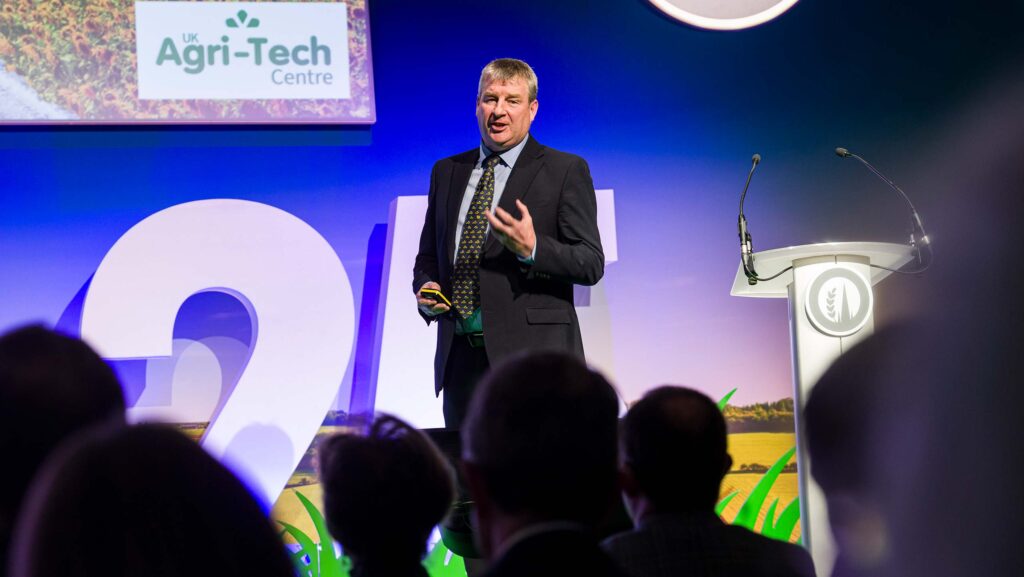Hydrogen fuel key to decarbonising agriculture, says JCB boss
 Tim Burnhope © Oxford Farming Conference
Tim Burnhope © Oxford Farming Conference Hydrogen fuel is poised to become a gamechanger for the agricultural sector in its quest to reduce carbon emissions, according to Tim Burnhope, JCB’s group director of special projects.
Speaking at the Oxford Farming Conference on Thursday 9 January, Mr Burnhope discussed how hydrogen-powered machinery could provide a sustainable solution for decarbonising agriculture while maintaining productivity.
One of the key advantages of hydrogen, Mr Burnhope explained, is that it can be produced with minimal environmental impact, especially when sourced from renewable energy.
See also: Big tractor engine makers bet on hydrogen as future fuel
However, Mr Burnhope acknowledged that widespread adoption of hydrogen technology will require substantial investment in both infrastructure and research.
In his speech, he reflected on the evolution of farming machinery, from traditional horsepower to the diesel engines of today. “The next decade will be one of the most innovative in engineering history,” he said, highlighting hydrogen as a viable long-term alternative to fossil fuels.
JCB has been testing more than 30 hydrogen-powered machines for over three years, accumulating 50,000 hours of testing and 25,000km on the road.
The company is now focused on developing hydrogen combustion engines that replicate the performance of traditional diesel engines, offering the same power, torque, and operator experience.
Mr Burnhope emphasised that local hydrogen production, potentially at farms, could further reduce costs and make the technology more accessible.
“Our goal is to work towards a future where renewable energy can be used to produce hydrogen locally, powering farming machinery in a zero-carbon world,” he said.
